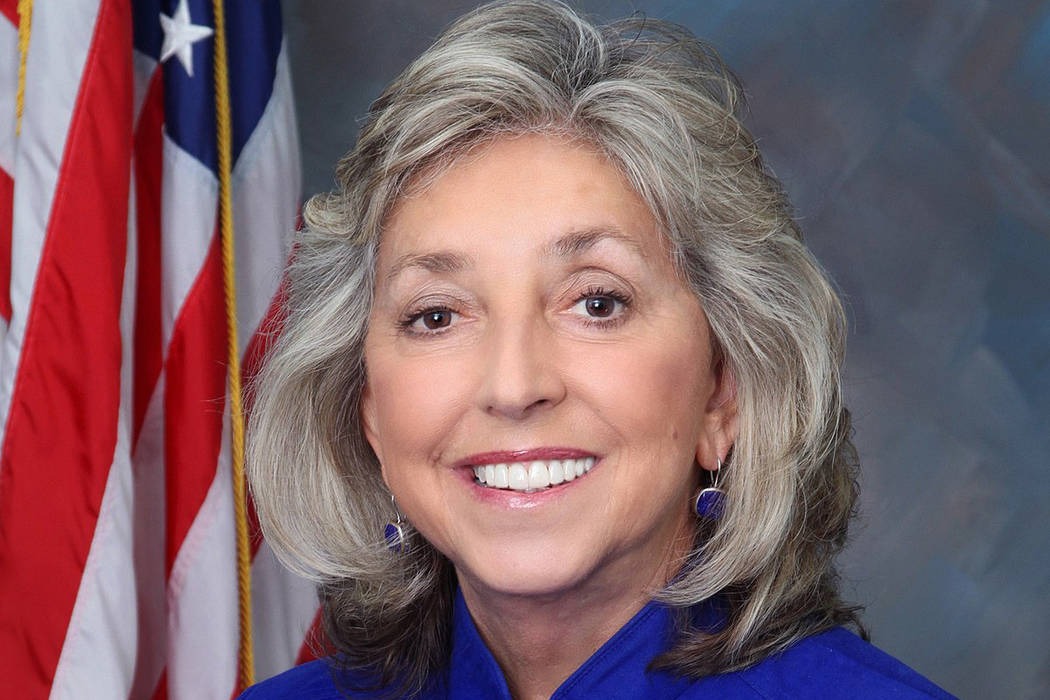Dina Titus weighs in on resort fees that would affect Las Vegas
Legislation requiring resorts to be transparent in the advertising of hotel room rates faces an uphill path, the congresswoman representing the Las Vegas resort corridor said.
“It’s just been introduced, and there’s an awful lot happening in Congress right now, so I’m not sure it’s going to move,” Rep. Dina Titus said of bipartisan legislation introduced last week by Reps. Eddie Bernice Johnson, D-Texas, and Jeff Fortenberry, R-Neb. “But we’ll be on top of it, because I represent the heart of Las Vegas and this will be something important and I want to be sure Nevada’s perspective is considered.
“In order to allow consumers to make wise purchasing decisions, I support prominent, early and clear disclosure of costs and fees,” she said. “That’s why I welcomed the original guidance that the Federal Trade Commission provided to help ensure transparency in the industry.”
The bill from Johnson and Fortenberry is a response to resort fees, mandatory daily charges added to a guest’s hotel bill to pay for incidentals like fitness center access, in-room safes, newspapers and Wi-Fi, whether they are used or not.
In Las Vegas, resort fees range from about $15 to $50 a night at some properties.
FTC authority
The FTC has the oversight authority to regulate unfair or deceptive acts or practices that impact commerce. In 2012 and 2013, the agency sent letters to 35 hotel operators and 11 online travel agents warning them that mandatory resort fees could confuse consumers.
In 2017, an FTC economist published an issue paper that found requiring consumers to click through additional webpages to see a hotel’s resort fee increases the time spent searching and learning the hotel’s true price.
After the bill was introduced Sept. 25, gaming industry analyst Carlo Santorelli said in a report to investors that the companies with the most at stake should the legislation pass are those with the greatest presence on the Strip — MGM Resorts International and Caesars Entertainment.
“While it is difficult to quantify the impact on demand of showing the full posted rate, or the pressure on the full posted rate as an operator attempts to reclassify the resort fee into the new posted rate, we believe it is easier to put some parameters around the impact related to online travel company commissions,” the report said.
“The bill, as one would expect, calls into question the fairness of the disclosure of the resort fee, given it is a mandatory charge that is not always transparent in the advertising of the rate,” Santorelli said. “While likely a result of some broader class-action lawsuits targeting traditional lodging companies, the bill, if successful, will have an impact on the larger scale Las Vegas Strip operators, namely MGM and Caesars.”
Legislation ‘unnecessary’
Nevada resort operators said Tuesday that they already provide transparency about such fees.
Rich Broome, a spokesman for Caesars, said its hotels “provide pricing transparency already and, as such, the proposed federal legislation is unnecessary in our view.”
MGM spokesman Brian Ahern said the company has been among the most transparent in the industry when it comes to displaying resort fees during the booking process.
He said the company’s disclosure is best-in-class compared with peers and other hospitality companies.
Santorelli said one of the benefits of the resort fee for operators is that online travel agencies do not share in the proceeds, since they get their commissions from the posted rate only.
Based on approximations of the number of rooms sold annually, the percentage of rooms sold by third-party agencies getting a 15-18 percent commission and an average resort fee of about $37 a night, Santorelli said the legislation would impact cash flow by about $15 million a year at MGM and about $10 million a year at Caesars.
Representatives of Boyd Gaming Corp., Station Casinos Inc. and Las Vegas Sands Corp., three other large hotel operators in Southern Nevada, did not respond to emailed inquiries about the legislation.
Transparency embraced
The Nevada Resort Association, which represents 71 properties statewide, said its members have embraced transparency since the FTC first examined the issue seven years ago.
“As a highly regulated industry, transparency and compliance are paramount to the success and longevity of Nevada’s largest industry,” a representative of the association said in an emailed statement.
“As a matter of practice and in keeping with longstanding Federal Trade Commission guidance, our industry clearly and prominently discloses resort fees throughout the booking process, giving the consumer the necessary information to make an informed choice in a competitive environment,” the statement said.
Spokeswoman Dawn Christensen said the association focuses primarily on state issues, and while it will weigh in on some federal matters, it often follows the lead of the Washington-based American Hotel Lodging Association and the American Gaming Association, which more closely monitor federal issues.
The Review-Journal is owned by the family of Las Vegas Sands Corp. Chairman and CEO Sheldon Adelson.
Contact Richard N. Velotta at rvelotta@reviewjournal.com or 702-477-3893. Follow @RickVelotta on Twitter.



















